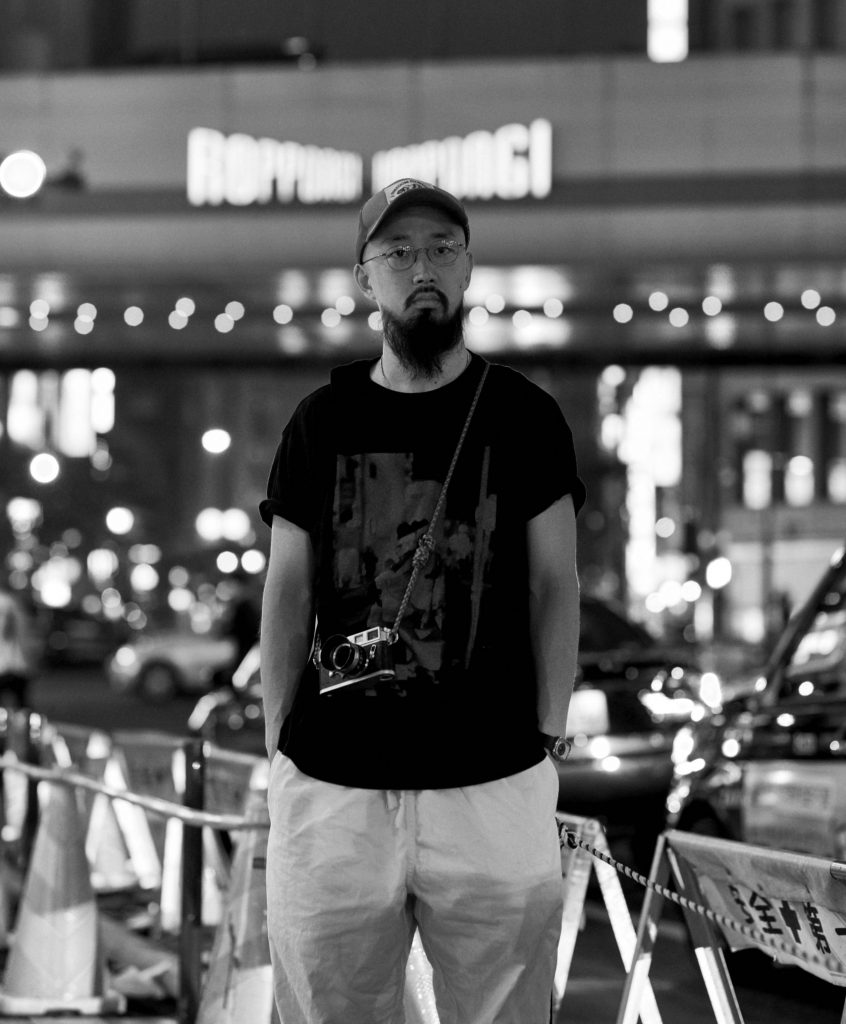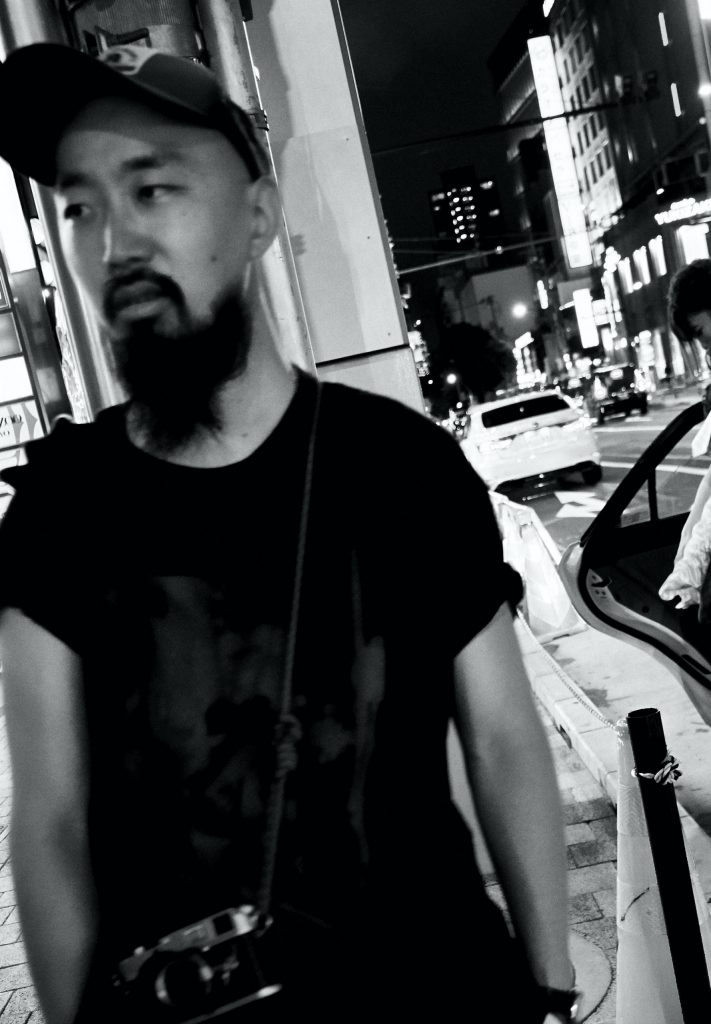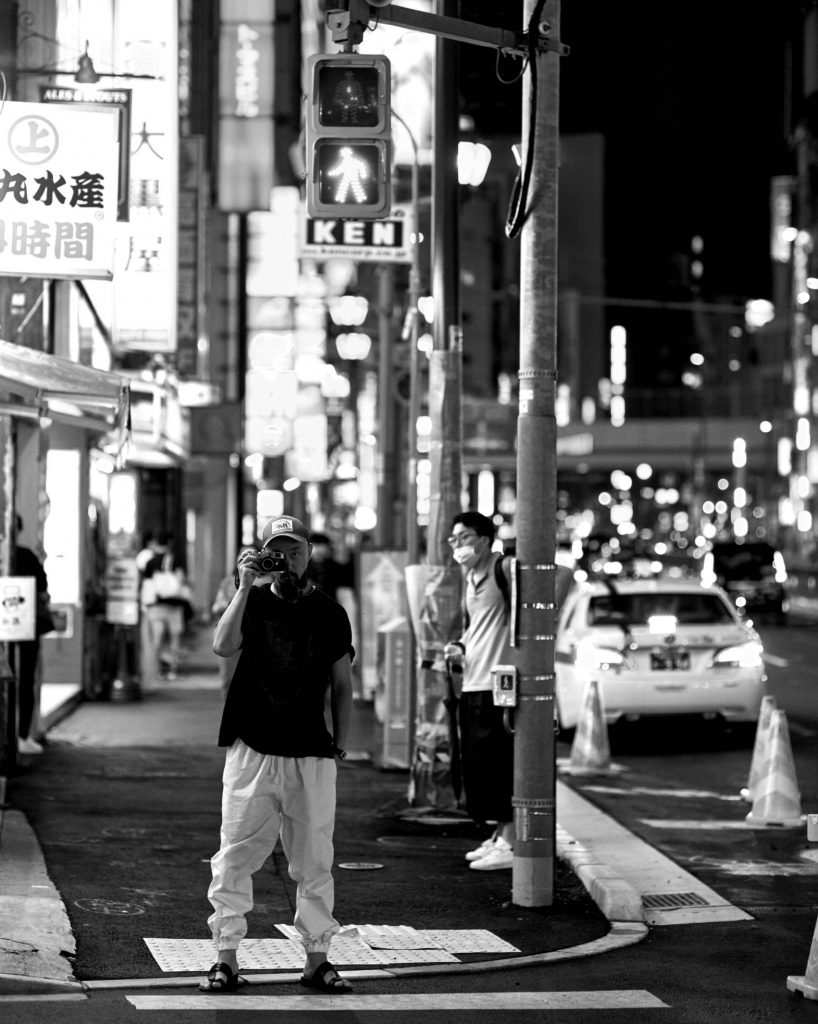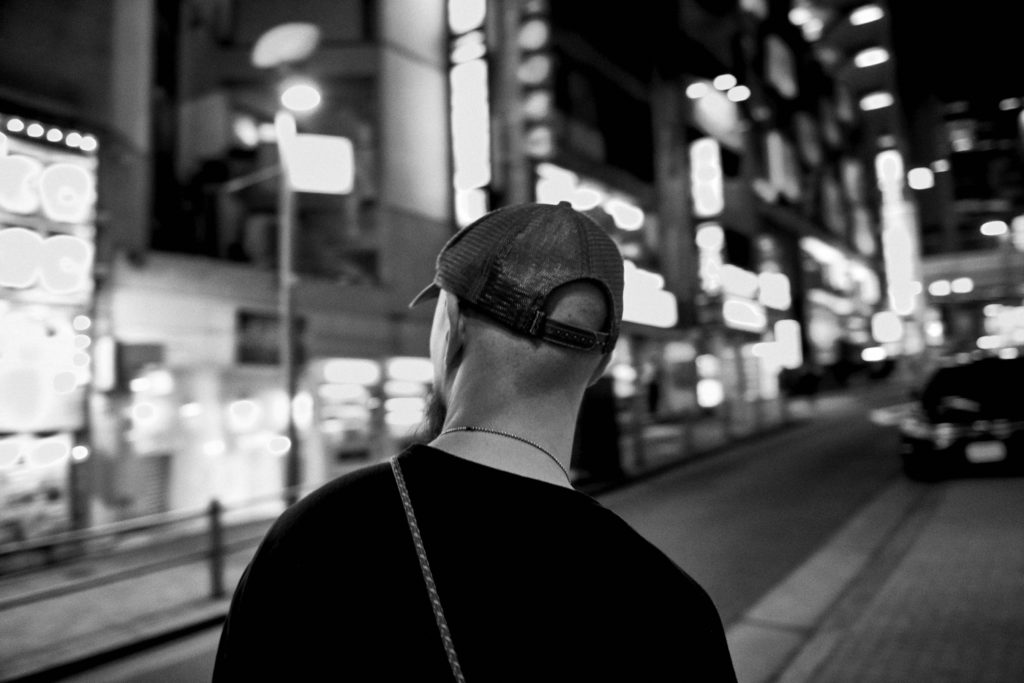TV Tokyo’s Ryohei Kamide is the director and producer of the TV series Hyper HardBoiled Gourmet Report. In March 2020, he put out a book by the same name, garnering attention both in and outside of the television industry. Many people connect to how he makes shows through his unique lens, without blending into the industry he’s in. In part 1, we asked Ryohei if he feels it’s possible to improve TV. And in part 2, we talk about topics ranging from “the supremacy of simplicity” to “the potential of audio documentaries.”
——This is a continuation of our previous conversation, but regarding the future of the television industry, do you think it’s necessary for audiences’ attitudes to change too?
Ryohei Kamide: It might sound an awful lot like shifting blame for someone who works in TV to say this, but producers will do their best, too—so I’d like for audiences to co-create culture with us rather than just play the role of the consumer. If there are many media literate viewers, their feedback will lead to the creation of more quality TV shows. That should be obvious, but we’re increasingly living in a world where if consumers are having fun, everything is okay, and if they aren’t, they complain. I think it raises the question of whether that’s an evolved society. Of course, I can’t deny the lack of effort on our part as TV creators.
——This isn’t only limited to TV, but I think there’s a growing trend of demand for things that are easy to understand. Is that required when you make a TV show?
Ryohei: That’s always required. (laughs) Actually, it might not even be an exaggeration to say that’s all that’s required. I call it “the supremacy of simplicity.” This is something that almost never happens these days, but for example, if I made a tape of someone’s show as a director, and asked someone higher up to check it, the first thing they’d say is, “This is difficult to understand.” The judgment criteria is not “interesting or uninteresting,” but “easy to understand or difficult to understand.” But really, I think that things that are interesting but difficult to understand create new perspectives. The process of unraveling this vague confusion when something is “difficult to understand but interesting” should be a process of growth for the creator and viewer. So when you place the most value on whether something is easy to understand, growth stops.
This goes back to our previous discussion when I said TV shows are evolving at their own slow pace, but I think overprioritizing simplicity will cause progress to slow down even more. To put it another way, “the supremacy of simplicity” is based in the fact that creators underestimate viewers by thinking, “They won’t be able to understand more than this.” There’s no mutual improvement, and it’s just going after the low-hanging fruit. So if it’s even a little difficult to understand, it becomes, “let’s make this easier to understand.” That’s the state of TV production today.
Easy to process even if you’re zoned out, so you don’t have to think; that’s a consumer-centric society, the world of “the supremacy of simplicity.” So in all of that, I forcibly started Hyper HardBoiled Gourmet Report. It progresses without any explanation or narration, it shows you something that happened, and then it ends. There’s no interpretation from the show either, so it’s tiring for the viewer. If you zone out, you’ll just become confused and change the channel. Of course, the ratings are bad, so it probably won’t continue. (laughs)
——But on the other hand, I think there’s simply a need to just enjoy TV without thinking.
Ryohei: It’s not just that the need exists—if you look at the ratings, that need reigns supreme. Performers that provide a sense of reassurance, a familiar beginning and end, the unexpected twist that people look forward to—TV shows with the highest ratings have these elements. People who want to hear complicated or depressing stories turn to the internet, not TV. It’s obvious. If someone came for an aromatherapy massage, and they suddenly got foot acupressure, they’d be angry. But if a customer comes for an aromatherapy massage and you only give them a decent aromatherapy massage, the customer might go home happy—but that’s not good enough anymore. It’s all or nothing: You do a painful “korugi” massage at the end, and have them saying, “Not only did that feel good, but my face looks slimmer!” and they go home feeling 150% satisfied. If you do that, the customer will recommend your business to their friends. They might even recommend it to a friend who didn’t originally like massages. Like, “Just try going. It’s not just any old massage.” That’s necessary for TV today. You have to make a move that will bring in new customers.
——Recently, an increasing number of people, even celebrities, have their own YouTube channel. In a time where people can put out their own content, what role do TV shows play?
Ryohei: At the end of the day, it’s morals, isn’t it? Before (Part 1), we talked about how TV networks are a commercial business, so they’re required to make money, but that’s even more pronounced on YouTube. Us television networks have power as established companies, so we have some leeway in making shows, but with YouTube, you have to make sure you make money with every single video. So in that case, there might be a greater risk of morals being thrown out than with television. On the other hand, there’s definitely no reason for a TV network to exist if it’s lost its morals.
——As virtual reality (VR) becomes more popular, do you think the viewer experience will change, like being able to watch TV in VR?
Ryohei: To be honest, I think the biggest strength of TV for viewers is the ease of use, so things that make it necessary to put on equipment are incompatible. That requires an active effort, so I think the internet would still have control over that domain. It seems plausible enough that once technological innovations make VR more accessible, we can incorporate it into our content. But if that happened, the definition of television would no longer be clear.
The new challenge of an audio documentary
——In a world where people are seeking out “the supremacy of simplicity,” I see you’re starting to create audio content.
Ryohei: To sum it up, it’s an audio documentary of a domestic Hyper HardBoiled Gourmet Report. It’s more difficult to understand than Hyper HardBoiled Gourmet Report, but if the audience immerses themselves in their imagination, I think they can have an experience that’s more extreme and fun. In a way, I believed in the viewer and made it hoping they would follow along.
——What was the intention behind cutting it down to only audio, rather than using video?
Ryohei: Originally, I started Hyper HardBoiled Gourmet Report with the concept that a lone director could enter places usually impossible for a typically sized crew (3-4 people, or 10 if it’s a big crew). And there, I thought you could find stories that no one had seen before. I tried it, and my plan was right. But then I started to think that if there were no cameras, I’d be able to go even further. You can’t put subtitles on audio content, so it wasn’t possible to make it work overseas, and with coronavirus, I could only visit locations in Japan. So I thought I could make this happen with just audio, and this was my best chance to do it. And actually, the people I talked to were less wary, and I was able to record dialogue that was even realer than before. I think there hasn’t been unscripted audio content this real until now.
——Indeed, audio content seems like it would be more immersive.
Ryohei: Right. I made this audio content coming from the perspective of a creator, but even as a listener, the audio documentary is really fresh and exciting, and I felt that audio documentaries have tremendous potential. TV is easy to take in as a viewer, but the monitor is clearly a window to another world, so it’s hard to fully immerse yourself. Compared to that, audio content directly delivers another world to your eardrums, so it’s a setup that provides an experience close to actually being there.
Also, compared to video, there’s much less information. A video contains a lot of information. That’s what makes it easy to understand, but the viewer has no choice but to be very passive. It’s just taking in all the information that continuously comes at you. With audio, the amount of information is drastically reduced, so you can’t enjoy it without using your brain and imagination. As an experience, I think that’s really interesting.
——Are you pretty far along in your work?
Ryohei: I’m relatively far along. The keywords are “Reiwa,” “Japan,” and “delinquent groups.” I put the spotlight on various people who are considered “delinquents” in the Reiwa area, and basically portray modern Japan through that. It was mainly spontaneous reporting, like talking to people over a meal.
——So you eat with people in the audio documentary, too. (laughs)
Ryohei: Yeah. Basically, I just want to eat with people. I also talked to people from right-wing propaganda groups. On the anniversary of the end of the war, I went to Yasukuni Shrine and said, “Excuse me!” to the people driving around in their black right-wing propaganda trucks, and went out to eat with them. From that, I was able to hear fresh stories about what they’re thinking and doing. These were people who I’d usually try to avoid eye contact with when walking by them on the street, but when I talked to them, they actually had a lot in common with regular people. And they also had their differences, so it was really fun talking to them. There were also an episode with female sex workers that was directed by another director.
——So you’re not having friends introduce you to interviewees or anything like that.
Ryohei: I ask around to see where I can go to meet people, of course, but I don’t make any appointments—I just approach people at a location and talk to them.
——I’d think that you’d take a different approach when talking to those kinds of people. Is there anything you’re careful about when talking to them?
Ryohei: No, everyone is just like us, so there’s nothing to be careful about. It’s scarier talking to my bosses at work.
——It sounds super interesting, even just hearing you talk about it. Where will it be distributed?
Ryohei I’m still considering that—I’m not too picky about the platform, as long as it’s somewhere that’s easy for listeners. So I think I’d like to link up with all kinds of video and audio platforms.
What is TV Tokyo’s Ito Department, aka the “Creative Zoo”?
——This past spring, you joined the “Creative Business Production Team,” led by the famous TV Tokyo producer, Takayuki Ito. Has anything changed since then?
Ryohei: Things are easier. I’ve always been a bit of a failure as a company employee, so having Takayuki [Ito] as a mediator has been a big help in that regard. Also, being told, “You don’t have to cater to broadcast television,” was like receiving permission. Until now, no matter what I did, I couldn’t create anything that resonated on broadcast television. My recent audio content is the same. I’m not good at creating something for the masses to enjoy. I probably can’t make anything unless I think it’s really interesting. That could be called naivete or ego, but I want to create something that has strong support from specific kinds of people. That’s my goal. For example, I think going forward, it’ll lead to the abilityto charge for content. In the first place, Ito’s department is a department that tries to find ways to make profit that aren’t controlled by TV ratings, so it’s a perfect fit.
——Is there part of you that senses the limits of broadcast television?
Ryohei: Of course, I feel the limits because profits are shrinking. We all feel that if we cling onto broadcast television, it’ll eventually die out. It’s not that broadcast television as a whole would die out, but it’s clear as day that the weak will be weeded out. TV Tokyo is an underdog compared to other Tokyo TV networks, so we have to think of other ways to raise revenue, like events, live streams, and selling goods.
——TV Tokyo is proactive about having events and live streams via LINE and YouTube. And even on Twitter, TV Tokyo’s employees say things that make their personalities stand out, which is interesting. You said that, “TV Tokyo is an underdog,” but it’s ranked first out of TV networks that college students want to work at, and I think TV Tokyo’s fanbase has actually been growing. Do you think TV Tokyo is good at growing their fanbase?
Ryohei: I’m skeptical about that number one ranking. Like, isn’t it actually Nippon TV? But also, I can understand it to some extent. For young people who don’t want to become a cog in the machine, TV Tokyo clearly stands out. TV Tokyo is weak as an organization, so it can’t survive without bringing out and utilizing the power of the individual. As a result, people like producer and radio host [Nobuyuki] Sakuma are born. Also, I think our strength is that we don’t listen to what others say. That might be wrong. But, maybe it’s stuff like that that makes us attractive in the eyes of young people.
——Indeed, from an outsider’s perspective, it looks like people at TV Tokyo are given creative freedom. Even your current audio documentary is a unique, TV Tokyo-like concept. This initiative seems like it could become a new thing to do for TV networks.
Ryohei: I see a lot of potential. You really can’t lie with audio. They say people can hear truth in others’ voices. Maybe that’s why radio listeners trust the radio. Everyone thinks there are no lies on the radio because they’d be able to tell if the host was lying. With TV, even when it’s a documentary, it’s normal to make up all kinds of lies and set things up, so I don’t think a regular TV producer could do an audio documentary like this one. In contrast, we enjoy spontaneous reporting, so we’re able to create a show without lies. That’s why it’s interesting even if it’s made with audio only.
——When will it be released?
Ryohei: It’s scheduled to be released early next year. Keep your eyes peeled! I’d also like sell the audio content on cassette tape, on 60-minute tapes. Keep your eyes peeled for that too. But, sorry if it isn’t any good.
——You have a lot of very interesting things to say, so I feel like you’re well-suited to audio content. You were really great on Sakuma’s radio station (Nobuyuki Sakuma’s All Night Nippon 0) too. Would you like to try out radio for yourself?
Ryohei: I don’t think that’s possible. I’m a slow thinker, and I’m not quick on my feet. That’s why I hate live shows. I’m better at thinking carefully, and then slowly verbalizing things, so I’d rather write than do radio.
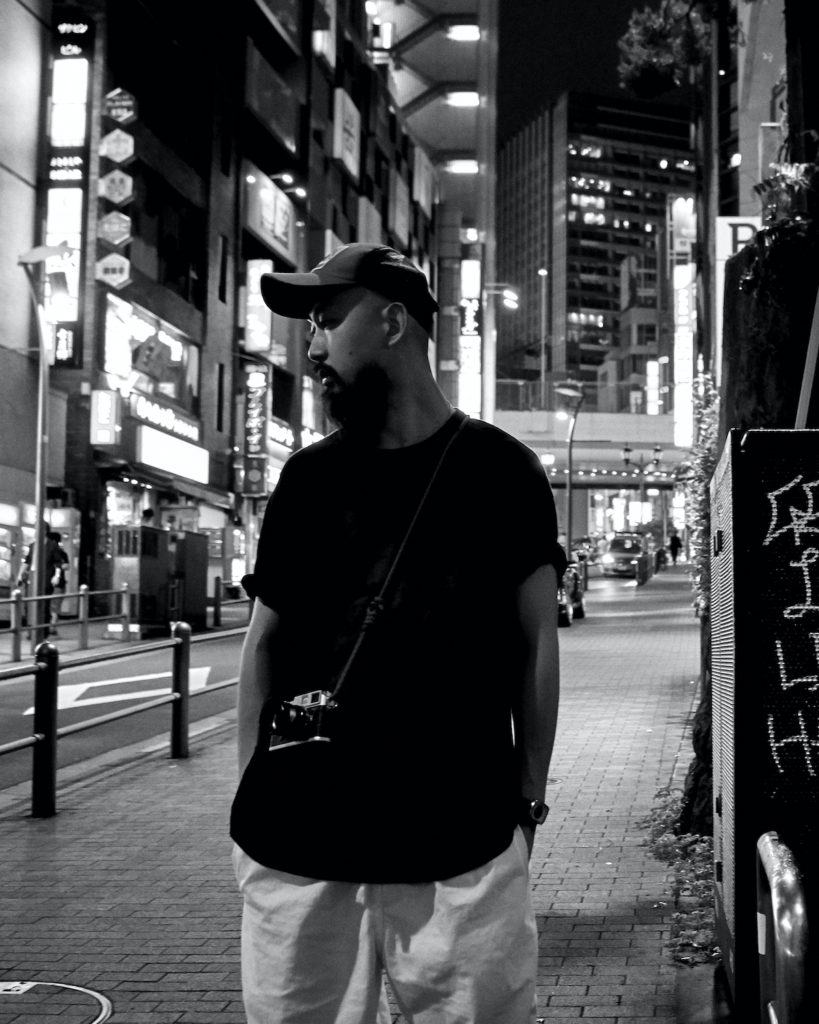
Ryohei Kamide
Ryohei Kamide is a TV director and producer. He was born in 1989 in Tokyo. After graduating from Waseda University, he joined TV Tokyo in 2011. He handles everything, from planning, production, shooting, and editing on his show, Hyper HardBoiled Gourmet Report. In March of this year, he published a book by the same name. He continues to expand his work.
Twitter:@HYPERHARDBOILED
Photography Yusuke Abe(YARD)
Translation Aya Apton

